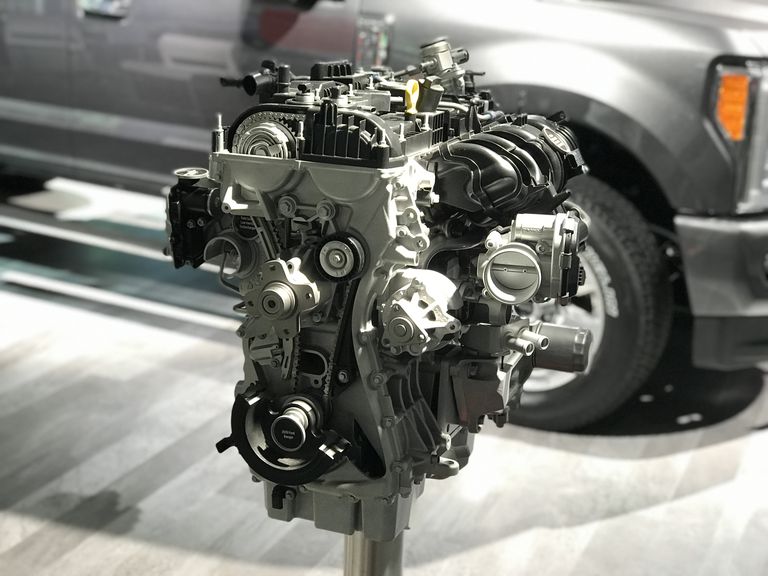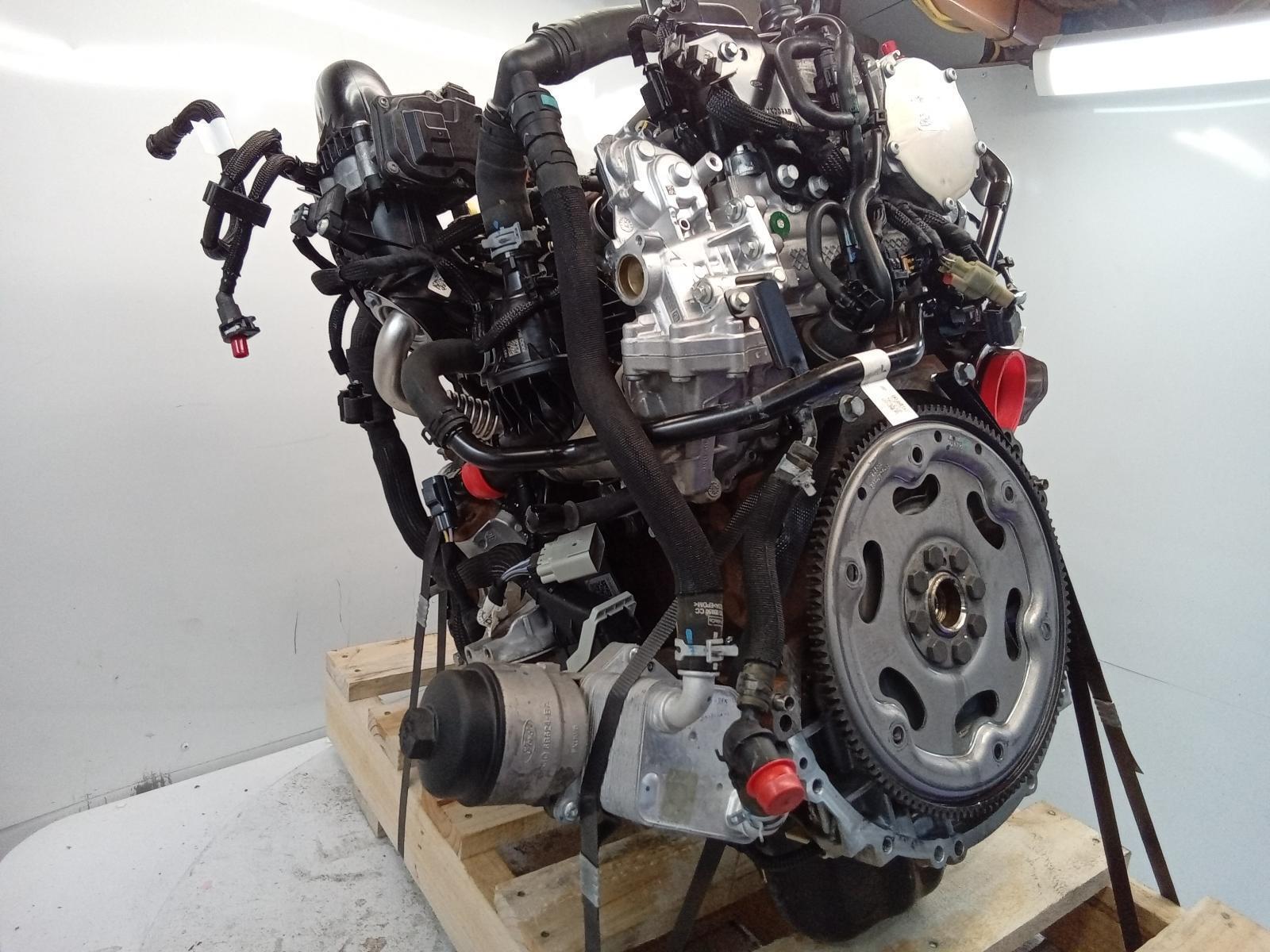Top Benefits of Choosing the 2.2 Ford Ranger Engine for Your Next Pickup
Top Benefits of Choosing the 2.2 Ford Ranger Engine for Your Next Pickup
Blog Article
What Makes an Auto Engine Run Efficiently: Leading Tips for Optimal Care
The smooth operation of an auto engine is fundamental to both efficiency and long life, making ideal care a vital obligation for vehicle proprietors. What specific actions should you focus on to ensure your engine continues to be in peak problem?
Regular Oil Changes
One of the most vital facets of car upkeep is ensuring your engine receives regular oil adjustments. Engine oil lubes internal elements, lowers friction, and aids maintain optimum operating temperatures. With time, oil degrades due to heat, contaminants, and the all-natural results of combustion, leading to decreased efficiency and prospective engine damage.
Most producers recommend changing the oil every 5,000 to 7,500 miles, yet this period can vary based on driving problems and oil kind. Artificial oils might permit for longer periods between modifications. Normal oil adjustments not only boost engine efficiency however additionally boost gas effectiveness, as clean oil advertises smoother procedure.
Disregarding oil changes can result in sludge accumulation, which impairs flow and can cause serious engine concerns. It is vital to check oil degrees frequently and check for any type of uncommon changes in shade or consistency, which can suggest contamination or degradation.

Maintaining Coolant Levels
Preserving proper coolant levels is important for preventing engine overheating and making sure ideal performance. The coolant, usually a blend of water and antifreeze, circulates through the engine, absorbing warm and avoiding thermal anxiety. Insufficient coolant can lead to raised engine temperatures, which may create severe damage or perhaps overall engine failing.
To keep optimal coolant levels, on a regular basis evaluate the coolant storage tank, usually found in the engine bay. Make certain the coolant is filled up to the advised mark, as shown in your car's proprietor handbook. It is suggested to check the degrees at the very least as soon as a month or eventually journeys, especially throughout extreme climate problems.
If you discover that the coolant degree is regularly reduced, there might be a leak in the cooling system, which must be dealt with without delay to stop more issues. 2.2 ford ranger engine. In addition, flushing the coolant system every 2 to 3 years can help get rid of any kind of built up debris and make certain effective warmth exchange
Monitoring Air Filters

It is recommended to check the air filter every 12,000 to 15,000 miles, or click here to find out more a lot more often if driving in dusty or negative conditions. A basic aesthetic inspection can often disclose whether the filter is filthy or a knockout post harmed. If the filter appears tarnished or has noticeable dirt buildup, it needs to be replaced immediately.
Making use of a high-grade air filter designed for your details vehicle version can even more enhance engine performance. In addition, some automobiles might gain from reusable filters that can be cleaned and reinstalled, supplying a environmentally pleasant and cost-effective option.
Inspecting Spark Plugs
Ignition system are necessary components of a car's ignition system, directly influencing engine efficiency and performance. They produce the spark that sparks the air-fuel mix in the burning chamber, helping with the engine's power generation. Normal inspection of spark plugs is essential for preserving ideal engine function and stopping prospective issues.
Throughout an evaluation, try to find indicators of wear or damage, such as cracks, carbon buildup, or extreme gap widening. A healthy and balanced stimulate plug normally displays a brown or tan shade. Dark residue or oil down payments can suggest incorrect burning, while a white or blistered look might recommend getting too hot. Both problems call for instant interest to avoid further engine damages.
It's a good idea to inspect trigger plugs every 30,000 miles, or as suggested in your vehicle's owner manual. he said Furthermore, consider changing them according to the maker's guidelines, as old or worn ignition system can cause misfires, decreased gas effectiveness, and raised exhausts.
Monitoring Tire Stress
Making certain correct tire pressure is a crucial facet of car safety and security and efficiency. Under-inflated tires can bring about lowered fuel performance, enhanced tire wear, and endangered handling. Alternatively, over-inflated tires can minimize traction and raise the risk of blowouts. Normal surveillance of tire stress is vital for optimal car operation.
Tire stress need to be checked at the very least once a month and eventually journeys. Make use of a trustworthy tire stress scale to gauge the pressure when the tires are chilly, preferably prior to the vehicle has actually been driven for at the very least 3 hours. Describe the automobile's owner handbook or the placard situated on the chauffeur's side door jamb for the maker's advised stress levels.
It is essential to note that tire pressure can rise and fall with changes in temperature level; a drop of 10 ° F can cause a 1-2 psi decline in stress. Furthermore, visually inspect tires for any type of indicators of wear or damages during your tracking regimen. Keeping correct tire stress not only enhances lorry safety and security yet likewise boosts gas efficiency and lengthens tire life, eventually contributing to a smoother engine efficiency.
Final Thought
In conclusion, keeping a vehicle engine's smooth procedure calls for thorough interest to several essential factors. Eventually, an aggressive approach to engine care is vital for ensuring reliability and functionality over time.
One of the most important facets of automobile upkeep is guaranteeing your engine gets normal oil changes. Engine oil lubricates internal parts, reduces rubbing, and aids keep optimum operating temperatures. Routine oil adjustments not just boost engine efficiency yet also enhance fuel efficiency, as clean oil promotes smoother operation.
Insufficient coolant can lead to enhanced engine temperatures, which may trigger serious damage or even overall engine failure.

Report this page